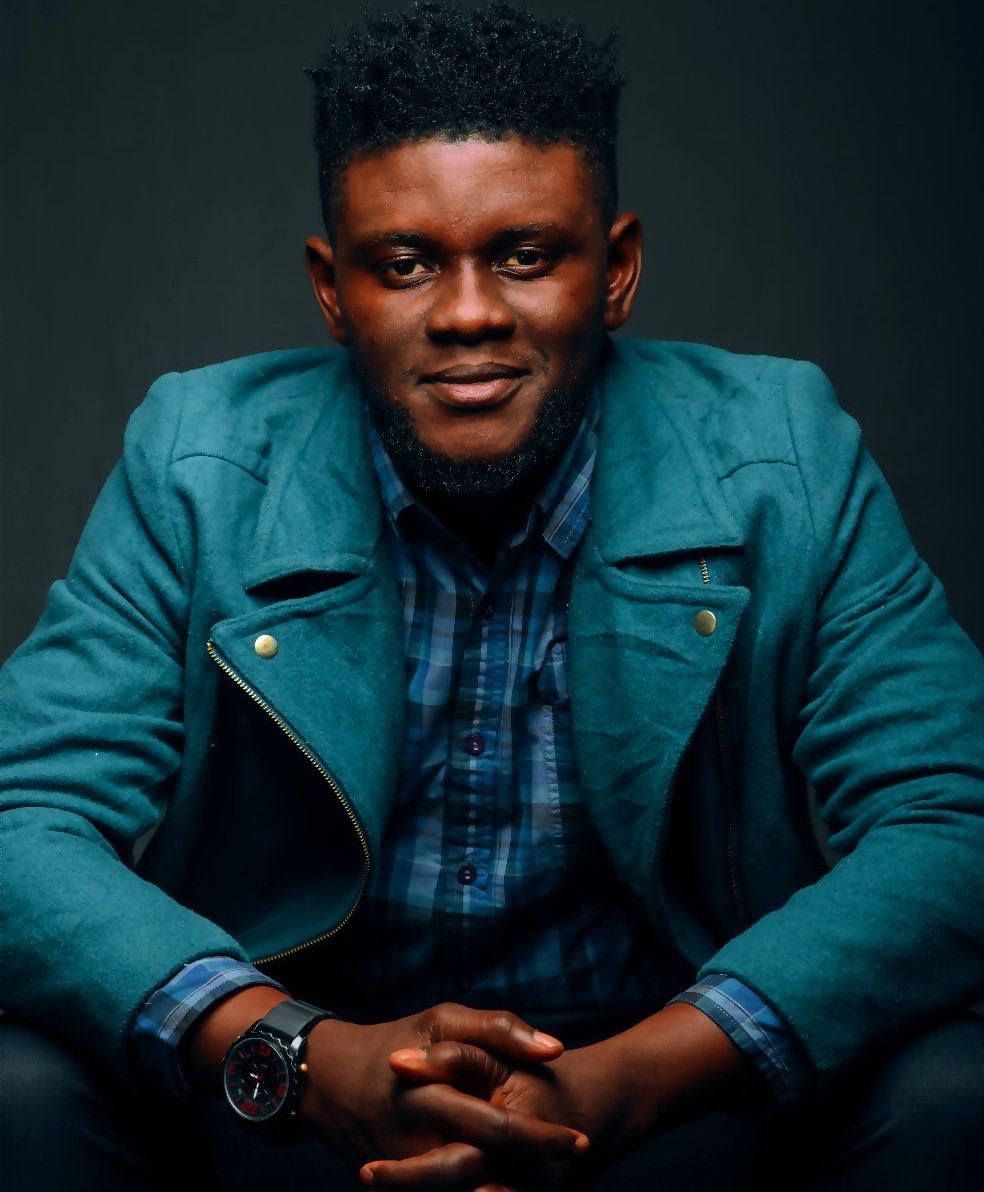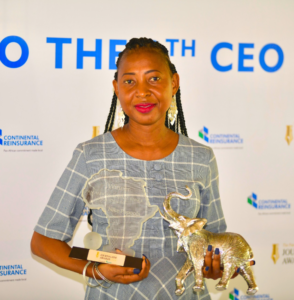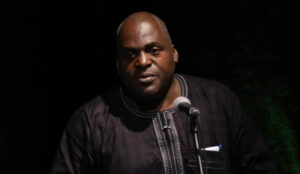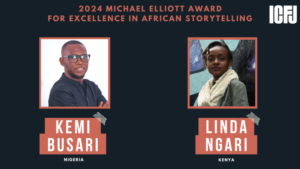Blaise Aboh, graduate of Metallurgical and Materials Engineering Technology tells his amazing story of becoming a citizen data scientist which involves exploring the impact of Automation and Artificial Intelligence in Data Analytics and Journalism.
My story as an Engineer who became known for Data Visualization and Storytelling cannot be told without mentioning my later father, Prince Isaac Ikechukwu Aboh, who inspired me and gave me my earliest knowledge. My father was a businessman who made a living importing auto spare parts and electronics. He never went to university but made it his lifelong goal to keep learning. For a trader he was, he wrote a lot of articles and papers on the history of Nigeria and his wartime experience. Papers which sadly remain unpublished due to his untimely passing.
My father wanted us his children to be all that he couldn’t be. In my earliest years, as my creativity began to spiral through scribbles and sketches, he took me to art galleries and bought me lots of art stuff from art shops to paint and draw. When I began exhibiting poetic tendencies, he supported that too. He listened to each of my poems as I read them to him. When I left secondary school, I assisted in the selling electronics at one of his shops in Alaba International Market for almost two years. When it was time for University, he made sure I left it all. At that time, business was good, and I saw a lot of money which had one of my dad’s friends asking him one day; “Are you sure Ugochukwu will still want to go to the University?”
My father was sure I wouldn’t opt out of University where I had been offered admission to study Metallurgical and Materials Engineering Technology in 2003. Life was tough because his business suffered a lot of setbacks, and the funds weren’t always there. I had to patch through by offering portrait drawings as a service. During the development of our final year project and choosing ‘options’, to be either a Material or Metallurgical Engineer, one of our lecturers mentioned the Ajaokuta Steel Mill, and how it will provide so many jobs for those of us who eventually go for Metallurgy. Almost 15 years after, Ajaokuta Steel Mill – built with $4.6bn is not functioning and may collapse unless another $400m is spent on it. Unlearning and Relearning saved my life.
“Unlearning and relearning was the only way up”
After graduating and serving my country, I spent seven months at home in search of an engineering job. I woke up one day and decided I would change careers. In those seven months, I was earning little money as a graphics designer, just to afford the basic things, using a tool and a skill I learned from my younger brother in 2001. I put together all the work I’d done in a portfolio and started applying for graphics design jobs. I got a few interviews and eventually landed a web graphics design job at a consulting firm. I remember being grilled thoroughly by one of my interviewers, one Mr. Akinsanmi Olusinminrin who remains like a brother to me today. I remember getting the mail saying ‘Congratulations you got the job’. Nearly four years after, I had gone from a Web Graphics (UI/UX) person to a Creative Director at an eCommerce company and then a publisher of an online business platform.
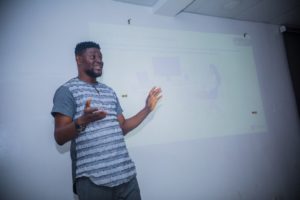
I founded and acted as publisher for ‘Thebusinessaim’ for two and a half years before I called it quits. It was tough, building something from the ground up and then leaving it to focus on something else. But it had to be done. At the time, I was absorbing a lot from my surroundings, the events I went to, the people I spoke to, the stuff I read, the projections and forecast of the future I listened to, mostly in the tech space. I stumbled upon the term Big Data one day, and it had so much potential, and shortly after I met a good man who pointed me further in the direction.
Every night after the day’s hustle, I made sure I read five articles about Big Data, Data Visualization, and related fields. On weekends I read longer PDF write-ups about the subject matter. I kept this up for four months till I decided I could pull off a data-driven project. In December 2014, I launched a project called Elections Data Analytics and Visualization (EDAV) – I converted as many election statistics and key information I could find into infographics and used them to create meaningful and viral conversations. At a point, the media and civil society organizations began reaching out to me to also have these infographics published on their platforms and on full pages of newspapers. By April 2015, I tracked the impact and reach of the over 100 infographics published, and I was ‘mind blown’. I knew then, there was no going back.
Becoming a Data Science and Data Journalism professional with a unifying goal of using both fields to address real-world complex problems has been rewarding despite its unspoken challenges. That’s a story for another time. I won the Leap Africa Social Innovation Award for my community development efforts in 2016, then the Code for Africa Innovation Fellowship in 2017. Same 2017, I won the Quartz Atlas for Africa Award for the best use of Data Technology tools to equip over 600 journalists and 100s of mass communication students at the time with data literacy skills. My organization Orodata Science and Civic Tech was featured in the Atlas of Innovation for Economic Stability publication by FHI 360, as part of the top 60 innovation helping individuals, households, communities, firms, and countries prosper. In May 2019 I made the Obama Foundation Leaders Africa 2019 – 2020 cohort. The Mozilla Foundation asked me to help Co-design the ‘Healthy Artificial Intelligence’ themed Mozilla Festival 2019 – taking place in Ravensbourne, London, England, and I have been doing that since May. I have also acted as trainer and mentor for programs by the United States Department of States – Techcamp, and The Global Editors Network (GEN). I cherish these experiences because they allowed me to give back to the community pieces of myself.
“It is not what you become, it is what you do with it”
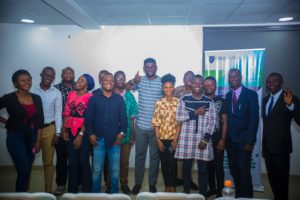
Every time I get the opportunity to talk to media professionals and anybody who cares enough to listen, I tell them to embrace new skills around Data Analytics, Artificial Intelligence, Automation, and Collaboration. Even I myself have gone on to take professional courses on some of these new technologies and even used them to build great stuff.
In a time of rapid process automation and remote work, collaboration tools like Airtable, Notion, Zenkit, Slack, Zoom, Google Meet, and DailyCo are like magic. Journalism has changed – today there are big talks on 360 Journalism, Drone Journalism, Geo Journalism and more. This is because new technologies are enhancing the way we live and work. These technologies will increase productivity for the media and many other jobs. It’s a good avenue for groups stuck in unemployment, low-wage jobs, non-standard work or excluded totally from the job market to get in and get even. I designed and introduced ‘The Future of Work Classes’ – a community-focused retraining and reskilling program to support this process of knowledge transfer through talent and skill development, towards an increasingly automated and digitized future.
Top media organizations have embraced new technologies like Virtual Reality, Augmented Reality and Artificial Intelligence. While some have figured most of it out, others are still trying to. Currently, Natural Language Generation (NLG) – a component of Artificial Intelligence and Machine Learning is being used to automate the generation of news articles and insights, producing almost-human stories in the quickest time. Yahoo Sports uses NLG to produce over 70 million reports and match recaps—each one unique—that helps to engage, monetize, and delight its massive user base. Greatcall generates over 200,000 health-focused activity narratives weekly, Associated Press (AP) uses the same to transform raw earnings data into thousands of publishable stories, covering hundreds more quarterly earnings stories than previous manual efforts. For any media professional looking to not be left out, the time is now, not just to learn how these technologies can boost their current work, but to actually incorporate them in their everyday activity.
